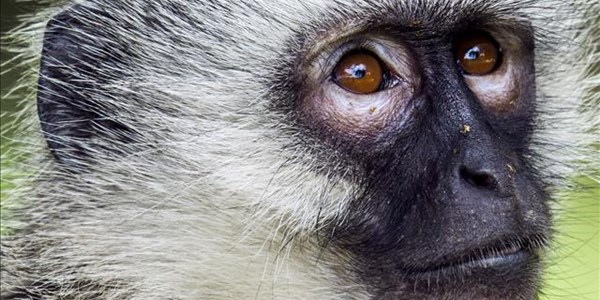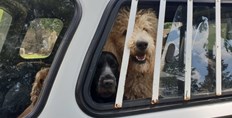Local News
Don't keep exotic pets, urges SPCA in Bloemfontein─── 12:50 Tue, 15 May 2018

The SPCA in Bloemfontein has urged South Africans not to keep exotic animals as pets after it discovered an abused monkey in Reddersburg.
The vervet monkey ( Chlorocebus pygerythrus ) had its leg sawed off and the owner had no permit to keep the animal.
"We tried to find the culprit," Reinet Meyer, senior inspector at the Bloemfontein SPCA told News24, adding that the owner handed over the monkey to the organisation.
While many people may consider exotic animals as pets because of popular culture, Meyer insisted that it was not a good idea.
"No, not at all. You must have a permit to have a monkey; you can't tame a wild animal, it won't work."
Traditional medicine
The vervet monkey is not a threatened species and is listed on Appendix II of Cites (the Convention on International Trade in Endangered Species of Wild Fauna and Flora) because of its widespread distribution and habitat tolerance.
The purpose of the agreement is to ensure that species do not go extinct because of international trade in specimens.
Meyer speculated as to the cause of the leg being sawn off.
"It could be for muti because there is some belief that, if you have a monkey paw you will be rich," said Meyer, adding that the organisation has come across monkey limbs among sangomas in the area.
This tallies with research from the Endangered Wildlife Trust which found that, in addition to traditional medicine, people take the monkeys as pets.
According to the organisation, 44% of the intake at the Vervet Monkey Foundation in Limpopo province were monkeys taken from the wild as pets.
Meyer warned that the monkeys do not make good pets because of their aggressive nature.
"They are aggressive especially when they are males because they belong in the wild. We take them out of the natural environment and it's actually wrong."
Cost
The monkey was sent to the Johannesburg Wildlife Veterinary Hospital for treatment, said the SPCA.
"Luckily, [the hospital] did the treatment for free and from there, it will go to a rehab centre sanctuary in Limpopo and there the monkey will survive because they care for it," said Meyer.
She said that the major cost for the SPCA was the fuel expense for the monkey's transport.
According to the SPCA, iguanas and monkeys make popular exotic pets, but Meyer warned that people should have appropriate licencing and educate themselves about the animals.
"It has become popular to have exotic pets but there's not a lot of knowledge."













